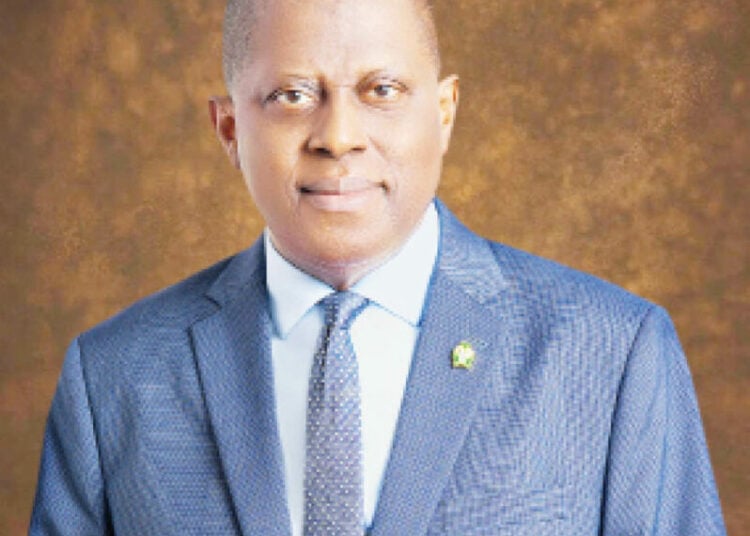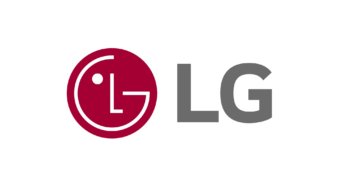If you’ve been wondering whether the Central Bank of Nigeria (CBN) is doing enough to rein in inflation and stabilize the economy, the decision of the Monetary Policy Committee (MPC) on Tuesday should offer some clarity.
At a time when many are watching for signs of economic direction and policy consistency, the MPC has chosen to maintain its current monetary policy stance — holding all key parameters steady. And the reasons, as laid out by CBN Governor Olayemi Cardoso, reflect a deeper, well-considered strategy to keep the economy on a steady path.
The MPC retained the Monetary Policy Rate (MPR) at 27.50 per cent, with the asymmetric corridor unchanged at +500/-100 basis points. Similarly, the Cash Reserve Ratio (CRR) was maintained at 50.00 per cent for Deposit Money Banks and 16.00 per cent for Merchant Banks, while the Liquidity Ratio remained at 30.00 per cent.
This is not just policy inertia or caution — it is a deliberate consolidation move at a critical moment in Nigeria’s economic trajectory. The MPC’s message is clear: with inflation slowing and exchange rates stabilizing, now is not the time to reverse or disrupt what appears to be a fragile but improving macroeconomic trend.
The retention of the current policy parameters was driven by several factors, most notably the need to consolidate gains in disinflation and anchor inflation expectations more firmly. For the third consecutive month, Nigeria’s headline inflation rate declined in June 2025, largely due to the moderation in energy prices and an increasingly stable foreign exchange environment.
As economic experts noted in their post MPC commentaries, these trends are not accidental — they reflect the impact of earlier tightening cycles initiated by the MPC since mid-2023, along with improved coordination between monetary and fiscal authorities. “By holding rates steady, the Committee is essentially allowing time for these positive developments to become fully entrenched in the economy,” economic policy analyst Justine Amase stated.
According to the MPC communiqué read by Governor Cardoso, “Maintaining the current policy stance will continue to address the existing and emerging inflationary pressure.”
That approach is particularly important given the noted uptick in month-on-month inflation, which suggests that core inflation pressures, especially from food and services, are still present.
In other words, while headline inflation is on a downward trend, the underlying drivers of price instability remain active. A premature loosening of monetary conditions could derail progress and send the wrong signals to markets.
The MPC also had to factor in global dynamics. The world is still grappling with persistent uncertainties, including the ongoing trade tensions between major economies and heightened geopolitical risks, such as conflicts in Eastern Europe and the Middle East. These have the potential to disrupt global supply chains and spike the cost of imported goods.
Nigeria, being an import-dependent economy for several inputs, is vulnerable to such external shocks. By maintaining a tight monetary policy stance, the MPC is seeking to buffer the domestic economy from imported inflation and preserve macroeconomic stability.
Moreover, not a few experts agree that the current tight stance helps protect the recent gains in the foreign exchange market. The relative calm seen in the naira-dollar exchange rate is largely attributed to the CBN’s efforts to enhance liquidity in the FX market through reforms and increased transparency. A stable exchange rate, in turn, supports price stability — a central objective of the CBN.
Critically, policy consistency — especially around inflation and interest rates — is essential for rebuilding investor confidence. Investors, both domestic and foreign, watch for signals of policy reliability and a coherent economic strategy. The MPC decision on July 22 2025 sends such a signal.
By showing that it will not rush to ease policy simply because inflation has started to trend downward, the CBN is reinforcing the message that it prioritizes long-term macroeconomic stability over short-term expediency.
The approach aligns with global best practices and helps build Nigeria’s credibility with credit rating agencies, development partners, and institutional investors.
Furthermore, sustained disinflation, combined with exchange rate stability and ongoing structural reforms, create a conducive environment for foreign direct investment (FDI).
Economic experts say as inflation continues to ease, real interest rates are expected to turn less negative or even become positive — making the Nigerian investment climate more attractive, particularly in sectors such as agriculture, manufacturing, technology, and finance.
The decision of the MPC carries significant implications for the business community. While high interest rates may mean higher borrowing costs in the short term, businesses stand to benefit from a more stable macroeconomic environment in the medium to long term.
Stable inflation means more predictable input costs, which enables better financial planning and budgeting. Similarly, exchange rate stability reduces the risks associated with currency volatility — especially for importers and manufacturers who rely on foreign inputs.
Moreover, as inflation slows and the CBN eventually gains room to ease rates in the future, businesses could see more favorable lending conditions. But an analysis of the operations and promises of the Central Bank suggest that rates cut will only be done from a position of strength and stability, rather than desperation or reactive policymaking.
The MPC also took time to assess the health of Nigeria’s banking sector—and the findings were reassuring. According to the Committee, the financial system remains stable, as evidenced by strong Financial Soundness Indicators (FSIs).
The ongoing recapitalisation drive has further strengthened banks’ resilience, with eight banks already meeting the new capital requirements and others progressing toward compliance.
A well-capitalized, stable banking system is critical for credit expansion, efficient financial intermediation, and overall economic stability. By commending the recapitalisation efforts and urging continued regulatory oversight, the MPC is supporting a financial ecosystem that can underpin sustainable economic growth.
This also signals to foreign investors and financial institutions that Nigeria is serious about de-risking its financial sector and ensuring it can withstand future shocks—be it from global markets or domestic headwinds.
According to staff projections shared by the CBN, inflation is expected to decline further in the coming months.
Several factors are contributing to this outlook: Tight monetary policy is curbing excess liquidity, exchange rate stability is reducing the cost of imported goods, declining petrol (PMS) prices are easing transport-related inflation, and approaching harvest season is expected to moderate food prices.
However, the MPC noted that inflationary risks have not fully dissipated, and as such, monetary policy will need to remain tight until there is sufficient evidence that these risks are no longer material.
This approach reflects prudence rather than complacency. It shows that the MPC is not trying to “chase growth” at the expense of stability. In fact, the committee’s commitment to its primary mandate—price stability—remains firm, with the understanding that growth is best sustained in a stable macroeconomic environment.
As part of its deliberations, the MPC offered critical guidance to both the CBN management and fiscal authorities. To the CBN, the committee advised sustained oversight of the banking sector, particularly in enforcing compliance with recapitalisation guidelines and maintaining financial soundness.
For fiscal authorities, the Committee implicitly called for better coordination of policies. While not spelled out in strong terms, the MPC’s consistent emphasis on external shocks, structural bottlenecks, and inflationary pressures stemming from non-monetary sources suggests that fiscal discipline, food supply interventions, and infrastructure development remain essential.
For example, addressing food inflation through improved logistics, storage, and agricultural productivity could complement the CBN’s efforts to rein in inflation. The same goes for prudent budgeting, targeted subsidies (if any), and enhanced revenue mobilization by the Federal Government.
The decision by the CBN’s Monetary Policy Committee to maintain its current policy parameters is not merely a technocratic adjustment — it is a vote for credibility, stability, and policy patience. It reflects a conviction that the economy is on a slow but steady path to recovery, and that policy flip-flops at this stage would do more harm than good.
For businesses, investors, and the general public, this is an affirmation that Nigeria’s monetary authority is prioritizing the long game. The strategy is to build resilience, attract investment, and create a platform for sustainable, inclusive growth. If the current trends continue — particularly on inflation and exchange rate stability — there may soon be room for easing.
But until then, the CBN has said it is keeping its eyes on the prize: a stable naira, declining inflation, and a trusted economic environment. It’s a message that deserves to be heard—and understood.





